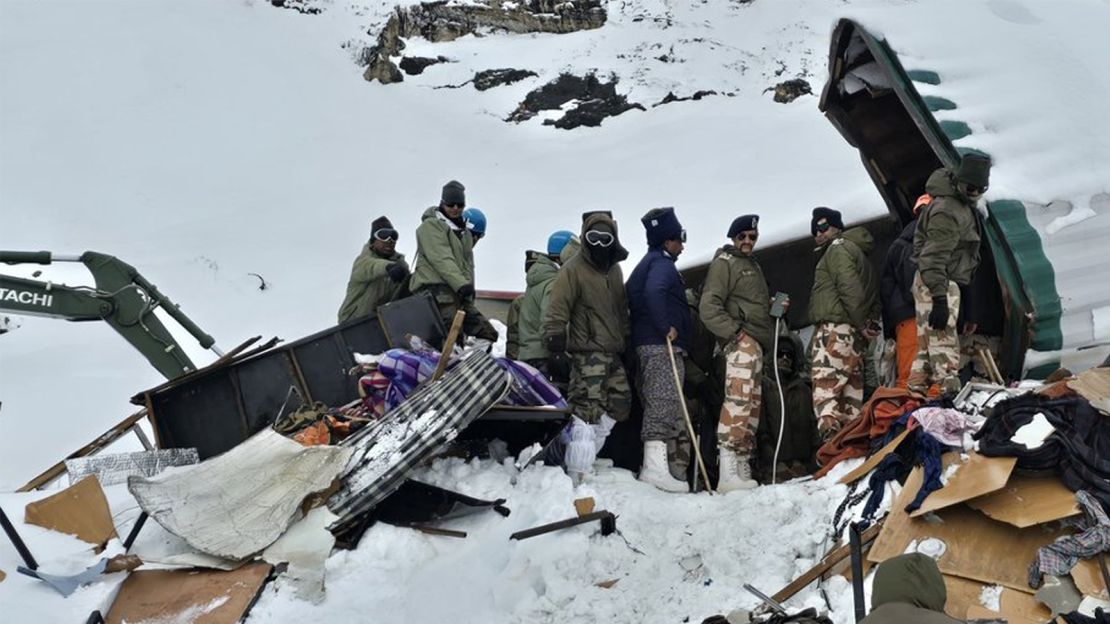New Delhi
CNN
—
Dozens of construction workers have been pulled alive from metal containers after they were trapped by a deadly Himalayan avalanche for around 36 hours, according to authorities in northern India.
The Indian Army launched a rescue operation after heavy snowfall triggered the avalanche last Friday near a construction site in the village of Mana, Uttarakhand state, about 10,500 feet (3,200 meters) above sea level.
Some 46 workers survived inside the containers, Indo-Tibetan Border Police and the Indian Army said. Eight workers were killed, officials said.
Many of those rescued were migrant laborers constructing a highway in the remote region, according to local authorities.
Lt. Col. Manish Srivastava, a defense spokesperson in Uttarakhand state, told CNN on Tuesday that the workers usually pitch tents but had set up temporary accommodation in eight metal containers due to inclement weather.
The decision likely saved many lives, he said.
“The containers… kept people safe and in fact made the rescue efforts easier because to find a body buried under such dense snow is much harder than finding a large container,” he said.
Photos posted to an Indian Army X account showed soldiers with sniffer dogs surrounding partially crushed metal containers in deep snow.
“Whoever could be taken out immediately was taken out … we got full support,” one unnamed survivor said from his hospital bed in a video attached to the post.

Avalanches and landslides are common in the Himalayas, especially during winter. But the human-induced climate crisis is making extreme weather events more severe and increasingly unpredictable.
Glaciers in the Himalayas melted 65% faster in the 2010s compared with the previous decade, which suggests rising temperatures are already having an impact in the area, according to a 2023 report by the International Centre for Integrated Mountain Development.
The erosion of glacial slopes also heightens the likelihood of floods, landslides and avalanches, increasing the risk to millions living in mountain communities.
In 2021, more than 200 people died after part of a glacier collapsed in Uttarakhand, carrying a deadly mixture of ice, rock and water that tore through a mountain gorge and crashed through a dam.

